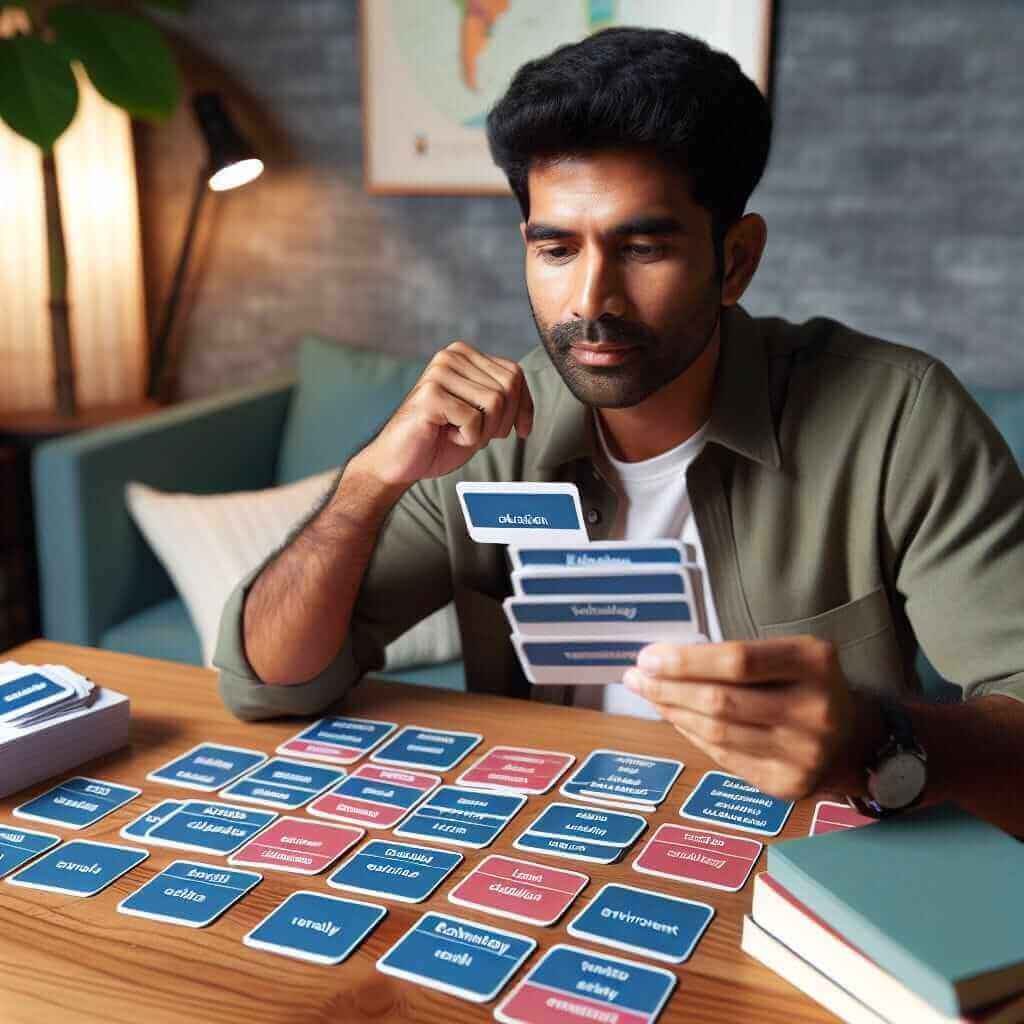For many IELTS aspirants, the question of “What are the best IELTS vocabulary lists?” is a common one. While simply memorizing lists isn’t enough for success, having a strong vocabulary is undeniably crucial for achieving a high IELTS score. This article will guide you through effective ways to build your vocabulary, focusing on strategies that go beyond rote memorization and equip you with the skills to use words accurately and fluently in the test.
Understanding the Importance of Vocabulary in IELTS
All four IELTS sections (Listening, Reading, Writing, and Speaking) assess your vocabulary. A wide vocabulary allows you to:
- Comprehend complex texts and conversations: This is essential for the Listening and Reading sections, where you’ll encounter a variety of accents, topics, and writing styles.
- Express your ideas clearly and effectively: In the Writing and Speaking sections, a rich vocabulary enables you to articulate your thoughts with precision and sophistication.
- Achieve a higher band score: Examiners specifically look for a wide range of vocabulary used appropriately.
Moving Beyond Generic Lists: Strategies for Effective Learning
Generic vocabulary lists can be a starting point, but they are not enough. To truly master IELTS vocabulary, consider these strategies:
1. Learn Vocabulary in Context:
Instead of memorizing isolated words, focus on understanding how words are used in sentences and different situations.
- Example: The word “impact” can have different meanings depending on the context.
- “The economic impact of the pandemic was significant.” (Meaning: effect)
- “The meteorite’s impact created a massive crater.” (Meaning: collision)
2. Focus on Topic-Specific Vocabulary:
Familiarize yourself with vocabulary related to common IELTS themes like education, technology, environment, and healthcare.
- Example: For the topic of “Education,” learn words like “curriculum,” “pedagogy,” “assessment,” “higher education,” and “vocational training.”
3. Utilize Authentic IELTS Materials:
Engage with past IELTS papers, practice tests, and official Cambridge IELTS books. This exposes you to the type of vocabulary used in the actual exam.
- Example: In an IELTS Reading passage about renewable energy, you might encounter words like “solar panels,” “wind turbines,” “geothermal energy,” “sustainability,” and “carbon footprint.”
4. Incorporate Active Learning Techniques:
- Use flashcards: Create flashcards with words on one side and definitions, synonyms, example sentences, or pictures on the other.
- Practice with word formation: Learn different forms of a word (e.g., “benefit” – beneficial, beneficiary, etc.).
- Keep a vocabulary notebook: Jot down new words, their meanings, and example sentences. Review regularly.
5. Use a Thesaurus and Dictionary Effectively:
Don’t just look up synonyms; explore the nuances in meaning between similar words. Use a dictionary to understand the various definitions and contexts of a word.
- Example: Instead of using the word “happy” repeatedly, consider synonyms like “content,” “joyful,” “delighted,” or “ecstatic,” depending on the specific emotion you want to convey.

Applying Vocabulary in IELTS: Examples and Practice
Let’s see how you can apply these strategies to different IELTS sections:
Writing Task 2:
- Topic: Discuss the advantages and disadvantages of using technology in education.
- Vocabulary: Instead of using basic words like “good” and “bad,” incorporate words like “benefits,” “drawbacks,” “enhance,” “facilitate,” “hinder,” “digital literacy,” “online platforms,” “interactive learning,” and “distractions.”
Speaking Part 3:
- Topic: The importance of preserving cultural heritage.
- Vocabulary: Utilize words like “cultural identity,” “historical significance,” “traditions,” “customs,” “preservation,” “restoration,” “heritage sites,” “cultural exchange,” and “intergenerational transmission.”
Common Mistakes and How to Avoid Them:
- Using unfamiliar words incorrectly: Only use words you understand well and can use accurately in a sentence.
- Overusing synonyms: While synonyms are helpful, don’t force them into your writing if they don’t fit the context naturally.
- Neglecting collocations: Pay attention to how words are commonly used together (e.g., “heavy rain” not “strong rain”).
Consistent Practice is Key:
Building a strong IELTS vocabulary is an ongoing process. The key is consistency. Dedicate time each day to learn new words, review previously learned vocabulary, and practice using them in different contexts. The more you engage with the language, the more natural and effortless using a wider range of vocabulary will become.
Remember, effective vocabulary use in IELTS is not about showcasing the most obscure words. It’s about selecting the most appropriate and accurate words to convey your ideas clearly, effectively, and with nuance.